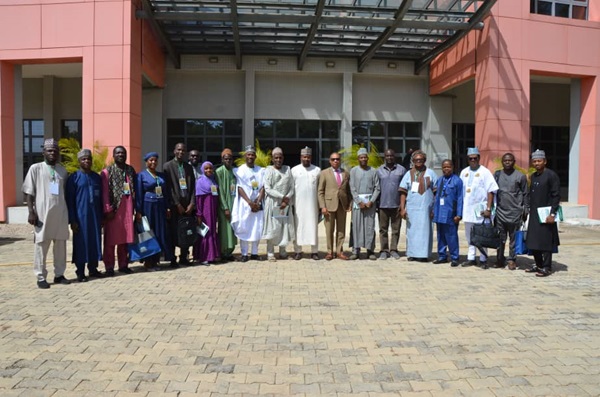
The African Aviation and Aerospace University (AAAU) in Abuja, in collaboration with Ahmadu Bello University (ABU) in Zaria, hosted a three-day international conference aimed at advancing science, artificial intelligence, and climate change solutions in Africa.
The event, themed “Open Science, Open Knowledge, Artificial Intelligence, and Climate Change in Africa,” was held from December 4 – 6, 2024, in Zaria.
High-profile dignitaries attended the conference, including the Minister of Aviation and Aerospace Development, Mr. Festus Keyamo, SAN who was represented by the permanent secretary of the Federal Ministry of Aviation and Aerospace Development, Dr. Emmanuel Meribole.
The chairperson of the local organising committee, Dr. Ibinaiye Dorcas set the tone for the event with an insightful overview of the conference objectives. A warm welcome was given by the acting librarian of ABU, Dr. Abubakar Abdullahi Mohammed, while the registrar of AAAU, Mustapha Sheikh Abdullahi delivered the opening remarks.
The vice-chancellor of ABU, Prof. Kabir Bala officially declared the conference open, highlighting the importance of collaboration in addressing Africa’s challenges through science and technology.
The 2024 international conference brought together academics and researchers from around the world, including representatives from San Diego Mesa College in California, USA; the University of KwaZulu-Natal in South Africa and the University of Rwanda. Nigerian universities and agencies present included the University of Maiduguri, Federal University of Technology (FUT) Minna, the Nigerian Meteorological Agency (NiMET), Kaduna State University, Miva Open University, Aliko Dangote University of Science and Technology, Wudil, Federal University Gashua, Yobe State, among others.
Presenters explored various topics related to the conference’s theme, addressing key issues such as the role of open science in driving innovation, the transformative impact of artificial intelligence on African economies, and strategies for mitigating climate change on the continent.
The conference served as a vital platform for fostering collaboration among researchers, policymakers, and institutions, aiming to harness the power of science and technology to address Africa’s unique challenges.
The presence of international and local experts highlighted the global relevance of the issues discussed and underscored the need for sustainable and inclusive solutions.

